Planning a wedding is a joyous yet intricate process, and one of the most crucial decisions couples face is selecting the ideal wedding venue. The venue sets the stage for the entire celebration and plays a significant role in creating lasting memories. To help couples navigate this important decision, I’ve compiled a comprehensive checklist of things to consider when picking a wedding venue.
Keep in mind that your wedding should be about YOU and your betrothed. As you browse this list, notice that not every point will be relevant to you. Skip over or cross out things that don’t matter to you. This list is simply for you to consider things you might not have considered and to discover what does matter to you while deciding on the place where you will marry the love of your life.

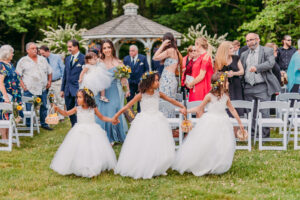
Budget Considerations
Embarking on the journey to find the perfect wedding venue is an exciting task, and at the heart of this quest lies a critical consideration – your budget. Establishing a clear and realistic budget is the foundation upon which the entire wedding planning process rests. As you delve into the world of venues, it’s essential to not only envision your dream celebration but also to weigh the financial implications wisely.
1. Setting the Financial Boundaries: The first step in your wedding venue expedition is defining your budget. Be honest with yourselves about what you can afford, taking into account all aspects of the wedding. Allocate a specific portion of your overall budget to the venue while leaving room for other essential expenses.
2. Venue Rental Costs: Understand the cost structure of potential venues. Rental fees can vary significantly based on factors such as location, size, and amenities. Some venues may have all-inclusive packages, while others might have à la carte pricing. Clarify what is included in the rental fee to avoid unforeseen expenses later.
3. Associated Costs: Your budget should extend beyond the venue rental. Consider associated costs, such as catering, decorations, and entertainment. Catering expenses, in particular, can constitute a significant portion of your budget, so factor in the per-person costs and any additional charges for specific menu options.
4. Hidden Fees and Service Charges: Uncover any hidden fees or service charges that might be associated with the venue. Some venues may have additional costs for cleaning, security, or overtime charges if your celebration extends beyond the agreed-upon hours.
5. Seasonal and Day-of-the-Week Variations: Keep in mind that wedding venue prices can fluctuate based on the season and the day of the week. Popular wedding months or weekends may come with a higher price tag, while opting for off-peak times can offer cost savings.
6. Payment Schedule: Understand the venue’s payment schedule. Some venues may require a deposit upfront, with the remaining balance due closer to the wedding date. Having a clear understanding of the payment terms helps you manage your finances effectively.
7. Contingency Fund: It’s prudent to set aside a contingency fund within your budget for unforeseen expenses. This ensures that you’re prepared for any unexpected costs that may arise during the planning process.
By approaching your venue selection with a well-defined and realistic budget, you set the stage for a smoother planning process. This financial roadmap not only guides your decision-making but also allows you to allocate resources thoughtfully, ensuring that your dream celebration remains within reach without compromising your financial well-being. So, as you embark on the journey to find the perfect venue, let your budget be your compass, guiding you towards a celebration that is not only beautiful but also financially sound.
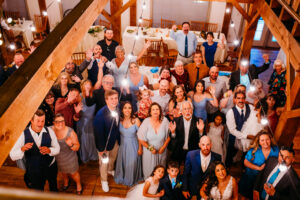
Guest List and Capacity
As you embark on the quest to find the perfect wedding venue, one of the fundamental considerations that will shape your choices is the size of your guest list and the venue’s capacity. This pivotal aspect requires thoughtful attention to ensure that the chosen space not only accommodates everyone comfortably but also creates an intimate and welcoming atmosphere for your celebration.
1. Define Your Guest List: Before exploring potential venues, take the time to define your guest list. Understanding the number of individuals you plan to invite sets the stage for making informed decisions about the type and size of the venue you’re seeking.
2. Venue Capacity and Comfort: Once you have a clear grasp of your guest list size, turn your attention to the capacities of the venues you’re considering. Look for spaces that can comfortably accommodate your expected number of guests without feeling cramped or overly spacious. A venue that aligns with your guest count ensures a more intimate and enjoyable atmosphere for everyone.
3. Flexibility in Guest Count: Consider the potential for fluctuations in your guest count. While you may have a tentative list, unforeseen circumstances can affect attendance. Choose a venue that offers flexibility in accommodating slight variations in the guest count, providing peace of mind as you finalize your invitations.
4. Intimacy vs. Grandeur: Gauge the ambiance you want to create. A smaller, more intimate venue may be ideal for a cozy celebration, while a larger venue may be suitable for a grander affair. Balance is key, ensuring that the space feels appropriately filled and exudes the desired atmosphere.
5. Outdoor Spaces and Overhead Considerations: If your chosen venue has outdoor spaces, factor these into your guest capacity calculations. Outdoor areas can provide additional room and a dynamic element to your celebration. Additionally, consider the venue’s overhead structure – high ceilings may create a sense of grandeur but can also make a space feel more expansive.
6. Layout and Seating Arrangements: Assess the venue’s layout to envision how guests will be seated. A well-thought-out seating arrangement contributes to the overall comfort and flow of the event. Consider whether the venue provides flexibility in arranging seating to accommodate various preferences.
7. Guest Experience: Prioritize the guest experience when choosing a venue. A space that feels just right for your guest count contributes to a more enjoyable and memorable celebration. Aim for a balance where the venue neither feels overcrowded nor leaves guests wandering in vast, empty spaces.
8. Venue Tours and Visualization: Schedule venue tours to experience the spaces firsthand. Visualize how the layout and capacity align with your vision for the celebration. This on-site exploration allows you to better understand how the venue will feel when filled with the warmth and energy of your guests.
9. Accessibility and Comfort Amenities: Consider the comfort of your guests by evaluating accessibility and the availability of amenities such as restrooms. Ensure that the venue’s infrastructure aligns with the needs of your guest demographic for a seamless and enjoyable experience.
By carefully considering your guest list size and the venue’s capacity, you lay the foundation for a celebration that is not only aesthetically pleasing but also conducive to the comfort and enjoyment of everyone in attendance. Choose a venue that harmonizes with your guest count, creating the perfect backdrop for the joyous moments that will unfold on your special day.
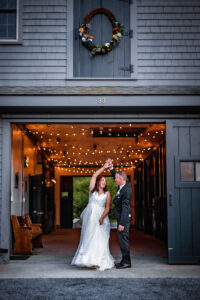
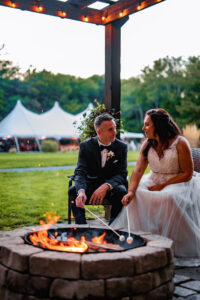
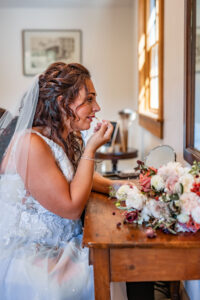
Location, Location, Location
The adage “location, location, location” holds significant weight when it comes to selecting the perfect wedding venue. The venue’s geographical setting not only sets the backdrop for your celebration but also influences the convenience and accessibility for both you and your cherished guests. Let’s delve into the considerations that make the location a pivotal factor in your venue decision-making process.
1. Travel Convenience: Evaluate the travel logistics for you and your wedding party. If the venue requires extensive travel, especially if it’s a destination wedding, consider the convenience of transportation options. Proximity to airports, train stations, or major highways can streamline the travel process for everyone involved.
2. Accommodation Options: Explore whether the venue’s location offers a variety of accommodation options for out-of-town guests. Nearby hotels, resorts, or bed-and-breakfast establishments provide convenience and comfort, allowing your guests to relax and fully immerse themselves in the wedding festivities.
3. Transportation Services: Consider whether the venue or nearby accommodations offer transportation services. Shuttles or transportation partnerships can simplify logistics for your guests, ensuring a seamless transition between different celebration elements.
4. Climate Considerations: Factor in the climate of the location, especially if you have specific seasonal preferences. Consider how the weather might impact travel plans for both you and your guests. Clear communication about potential weather conditions helps everyone prepare accordingly.
5. Venue Logistics: Delve into the logistics of the venue itself. Check if there’s ample parking or if the venue offers valet services. Understanding the practical aspects of the venue’s location contributes to a smoother overall experience for you and your guests.
6. Scenic Surroundings: While focusing on convenience, don’t compromise on the aesthetic appeal of the location. Choose a venue with scenic surroundings that align with your vision for the celebration. A picturesque setting enhances the overall ambiance and provides beautiful backdrops for your photos.
7. Local Regulations and Permits: Research local regulations and permits required for your wedding. Different locations may have specific rules regarding outdoor ceremonies, noise restrictions, or other considerations that could impact your celebration.
By prioritizing the accessibility and convenience of the location, you not only streamline the logistical aspects of your wedding but also ensure that your guests can fully immerse themselves in the joyous celebration without the burden of travel-related stress. Choose a location that not only speaks to your heart but also welcomes everyone with open arms, creating a truly memorable and accessible wedding experience.
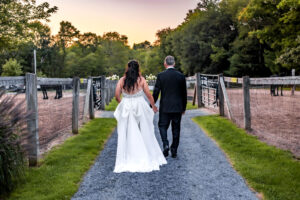
Ambiance and Style
When it comes to selecting a wedding venue, one of the most influential factors that shape the overall experience is the ambiance and style of the space. Every couple envisions a unique atmosphere for their special day, and the venue plays a pivotal role in bringing that vision to life. Here’s an exploration of how defining the ambiance and style can guide you toward a venue that resonates with your wedding dreams.
1. Envision Your Wedding Style: Before diving into the world of venues, take the time to define the style you envision for your wedding. Is it rustic and charming, modern and sleek, or perhaps a blend of traditional and eclectic elements? Establishing a clear vision for your wedding style serves as a compass as you navigate through venue options.
2. Venue Architecture and Design: Consider the architectural and design elements of potential venues. Does the venue’s aesthetic align with your envisioned style? Look at the overall structure, interior decor, and any distinctive features that contribute to the venue’s visual appeal.
3. Theme Compatibility: If you have a specific theme in mind, ensure that the venue complements and enhances that theme. Whether it’s a vintage-inspired affair, a garden celebration, or a chic urban gathering, the venue should seamlessly integrate with your chosen theme, creating a cohesive and immersive experience.
4. Flexibility in Decor: Assess the venue’s flexibility when it comes to decor. Some venues have a neutral palette that allows you to bring in your own style through decorations, while others may have specific design elements that could influence your decor choices.
5. Natural Elements: Consider the natural elements of the venue. A garden venue may offer lush greenery and floral backdrops, while a beachfront location provides the natural beauty of sand and sea. Leverage these inherent elements to enhance the ambiance you desire.
6. Lighting Options: Evaluate the venue’s lighting options. Lighting can dramatically impact the mood and atmosphere of your celebration. Whether it’s natural light pouring in through large windows or strategically placed fixtures, choose a venue that allows for versatile lighting options to suit different moments of the day.
7. Size and Intimacy: The size of the venue contributes significantly to the ambiance. A more intimate venue may enhance feelings of closeness and warmth, while a larger space can accommodate grander affairs. Ensure that the size aligns with the atmosphere you want to create.
8. Seasonal Considerations: If you have a specific season or time of year in mind for your wedding, consider how the venue complements the seasonal elements. A venue with outdoor spaces may be perfect for a spring or summer celebration, while an indoor venue with cozy features may be ideal for a winter wedding.
9. Venue History and Character: Explore the history and character of the venue. Some couples are drawn to the charm of historic buildings or unique features that add character. Choose a venue that not only aligns with your style but also resonates with your personal connection to its story.
10. Personal Touches: Select a venue that allows you to incorporate personal touches. Whether it’s customizing the decor or adding sentimental elements, the venue should be a canvas that allows you to infuse your unique personality and style into the celebration.
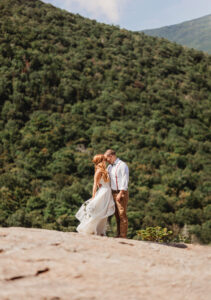
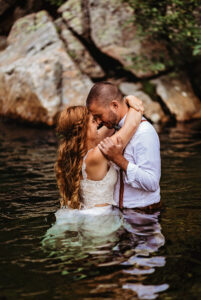
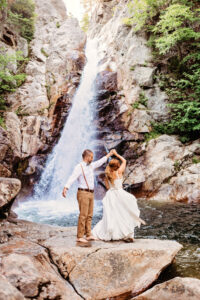

Natural Light and Scenic Backdrops
When embarking on the quest for the perfect wedding venue, two key elements that can significantly elevate the overall ambiance and visual appeal are abundant natural light and picturesque scenic backdrops. These elements not only enhance the atmosphere but also provide a canvas for breathtaking photo opportunities, capturing the essence of your special day. Let’s delve into the significance of these features and how to identify venues that embrace the beauty of natural light and stunning vistas.
1. Abundant Natural Light: Natural light is a powerful and transformative element that can breathe life into any space. When seeking a wedding venue, look for places with ample windows, skylights, or open spaces that allow the sunlight to cascade into the surroundings. Natural light not only creates a warm and inviting atmosphere but also produces stunning, well-lit photographs that showcase the genuine moments of your celebration.
2. Consider the Venue’s Orientation: Assess the orientation of the venue in relation to the sun. A venue with strategically positioned windows or outdoor spaces that capture the best of natural light throughout the day can enhance the overall experience for you and your guests.
3. Indoor-Outdoor Connectivity: Explore venues that seamlessly blend indoor and outdoor spaces. This not only provides flexibility for different aspects of your celebration but also allows you to leverage both natural and artificial light sources, creating a dynamic and visually appealing environment.
4. Versatile Lighting Options: Beyond natural light, consider the venue’s lighting options. Look for spaces equipped with versatile lighting setups that can be adjusted to suit different moments of your wedding day, from the soft glow during the ceremony to vibrant lighting for the reception festivities.
5. Scenic Backdrops for Photo Opportunities: The backdrop against which your wedding unfolds plays a crucial role in creating timeless photographs. Seek venues with captivating scenic backdrops that align with your aesthetic preferences. Whether it’s a lush garden, a majestic mountain view, or an urban skyline, these backdrops become integral elements in your wedding album.
6. Outdoor Spaces with Panoramic Views: If your heart is set on outdoor celebrations, search for venues with outdoor spaces offering panoramic views. A natural landscape or architectural features can serve as a stunning backdrop, adding depth and dimension to your ceremony and reception photographs.
7. Sunrise and Sunset Considerations: For an added touch of magic, consider how the venue interacts with the sunrise and sunset. Outdoor ceremonies or photo sessions during these golden hours can result in enchanting images bathed in warm, soft light.
8. Architectural Features Enhancing Light: Explore venues with architectural features that enhance the play of light. A venue with reflective surfaces, glass installations, or interesting structural elements can contribute to captivating light patterns and unique photo opportunities.
9. Personalized Lighting Installations: Consider whether the venue allows for personalized lighting installations. String lights, lanterns, or other decorative lighting elements can add a touch of magic and create a romantic atmosphere, especially as the day transitions into evening.
10. Venue Tours and Sunlight Mapping: When conducting venue tours, pay attention to how sunlight interacts with the spaces at different times of the day. Sunlight mapping can help you visualize the venue’s potential for creating the desired atmosphere and photo aesthetics.
Choosing a venue that embraces natural light and offers stunning scenic backdrops is not just about aesthetics; it’s about creating an immersive experience that resonates with the joy and beauty of your wedding day. By prioritizing these elements, you not only enhance the visual allure of your celebration but also ensure that the essence of the moment is authentically captured, creating memories that will last a lifetime.
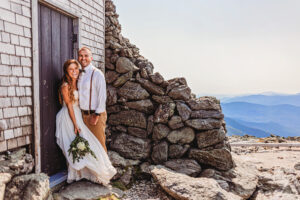

Odds and Ends
- Assess the venue’s layout to ensure a seamless flow between different sections, from the ceremony to the reception. Consider how guests will move through the space and how it will impact the overall experience.
- Inquire about any restrictions the venue may have, such as decor limitations, noise restrictions, or time constraints. Make sure these align with your vision for the day.
- If you’re considering an outdoor venue, have a backup plan in case of unexpected weather changes. Ensure the venue has an indoor option or provides suitable solutions.
- Check if the venue requires any permits or has specific regulations regarding music, photography, or alcohol consumption. Ensure everything aligns with local laws and regulations.
